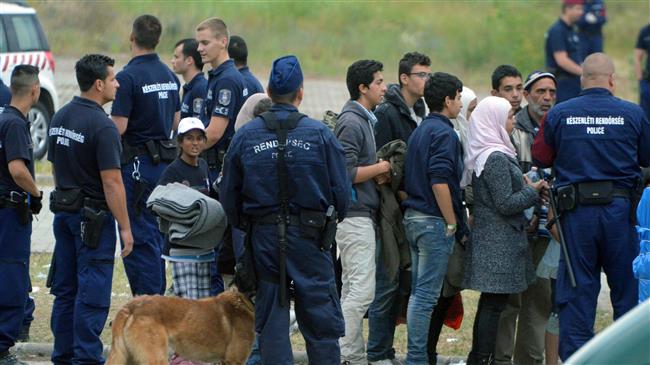UN calls on Hungary to crack down on hate speech against minorities, including Muslims
The United Nations Human Rights Committee has urged Hungary to crack down on hate speech made and spread by the country’s politicians against minorities, including Muslims, calling on the nationalist government to repeal a law allowing police to force out irregular refuges without giving them a chance to seek asylum.
A panel of the UN rights committee on Thursday also urged the government of Prime Minister Viktor Orban to reject draft laws known as the “Stop-Soros Package” that would enable the interior minister to ban NGOs that support migration and pose a “national security risk.”
The so-called bill is part of an anti-immigration move by Orban that has set his sights on a campaign by Hungarian-born financier and philanthropist George Soros to boost liberal and open-border values in Eastern Europe.
The Central European country, regarded as one of the most unwelcome states in the continent for refugees and asylum seekers, is led by a premier, who has long taken a hard line on immigration, and had previously referred to refugees as “poison.” Orban has also repeatedly rejected refugees’ humanitarian plight and once referred to groups of refugees as “a Trojan horse for terrorism.”
The panel further expressed its deep concerns about “the prevalence (in Hungary) of hate crimes and about hate speech in political discourse, the media and on the Internet targeting minorities, notably, Roma, Muslim, migrants and refugees, including in the context of government-sponsored campaigns.”
The UN panel released its findings and recommendations after its independent experts reviewed the European country’s record on upholding civil and political rights. The results were issued three days ahead of Hungary’s general election. Orban, striving for a third consecutive term in Sunday’s vote, has already conveyed a strong anti-migration message.

Last year, Hungary adopted a controversial law that allows for automatically removing all asylum applicants to transit zones for indefinite confinement. The law drew the panel’s strong condemnation at the time, for it was in sheer violation of the International Covenant on Civil and Political Rights, a treaty ratified by Budapest.
The panel called on Hungary to “repeal the push-back law” of June 2016 that enables police to summarily expel anyone crossing into the country irregularly. “Individuals subjected to this measure have very limited opportunity to submit an asylum application or right to appeal,” the panel added.
Europe has faced an influx of refugees arriving from conflict zones since 2014. Many of the refugees have been fleeing wars and conflicts either directly waged or exacerbated by Western countries.
While Germany originally welcomed the refugees, it gradually imposed certain restrictions on the numbers of asylum seekers who could stay in the country. Most of the refugees tried to pass through Hungary to reach Germany, their ideal destination.
In December, Budapest, along with Poland and the Czech Republic, defended its “right” to reject EU-imposed refugee quotas amid pressure from the European Commission (EC). Despite repeated EC warnings, the three countries continue to pursue a course of non-compliance, arguing that refugees pose a direct threat to public security.
In September, Hungary also claimed that fences erected on its borders with Croatia and Serbia had helped slash the inflow of refugees by over 99 percent since 2015. The country’s border fence has been repeatedly censured by other European states, as well as by EU politicians, though Budapest has resisted pressures to remove it.
'Next to impossible' to rescue patients from Gaza's Kamal Adwan Hospital: Director
VIDEO | Vietnam current prosperity
Report blames gasoil exports for shortage at Iranian power plants
VIDEO | Hind Rajab Foundation names Israeli war criminals vacationing after Gaza genocide
VIDEO | Australians rally for Gaza ahead of Christmas festivities
VIDEO | Attacks on Sana'a
Iran reports further drop in annual inflation rate in December
Israel indicts two settlers over suspected spying for Hezbollah














 This makes it easy to access the Press TV website
This makes it easy to access the Press TV website